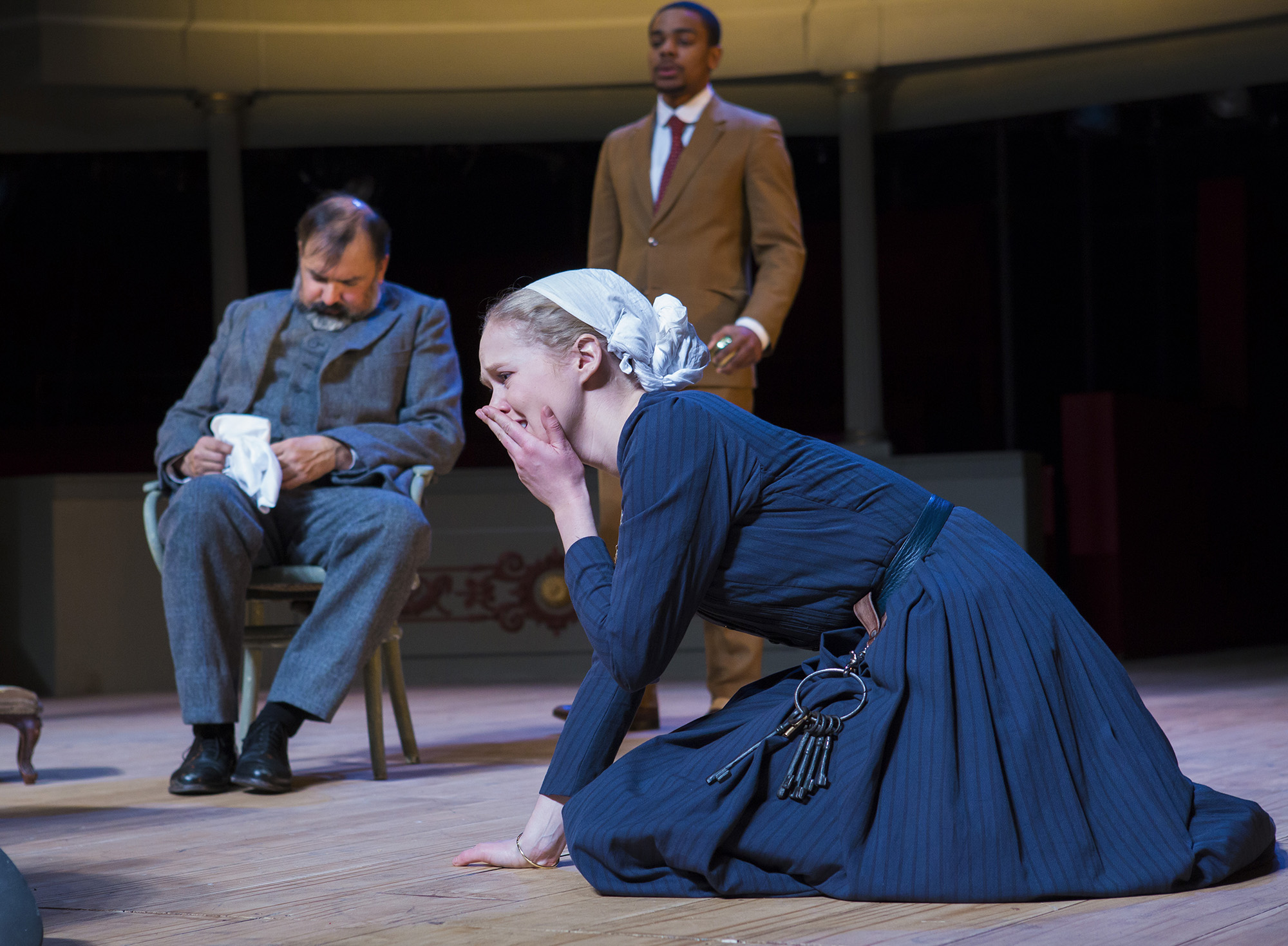
This is a play that readily accepts the thumbprint of director and cast. The variety of hinted-at themes need only the smallest of tweaks on the volume control to guide our attention this way or that. Or again the perennial question of how much comedy is going to be extracted is in the gift of the director. Famously, Chekhov and the play’s first director, Stanislavsky, failed to see eye to eye on that question.
It can seem at times that sitting through The Cherry Orchard is like watching a train crash in slow-motion whilst the passengers party-on in the buffet car, ignoring calls to pull the emergency chain. Yet it’s a limited metaphor; any train crash is an unmitigated disaster for all concerned, whilst for the members of the Ranyevskaya household and circle the future, post crash, for some at least, is a brighter place.
The translation and realization of this production navigate that delicate line (if indeed a line) between honouring Chekhov’s aim in saying something about the essence of Russia and it’s people – his palette of characters being thus broadly drawn (reflected in a commendably diverse cast) – whilst accommodating a contemporary sensibility without any insult to the original. In the latter case, Michael Boyd has employed a small theatrical conceit in allowing the costumes to drift almost imperceptibly through time as the play progresses. But more to the point, both translator (Rory Mullarkey) and director have allowed the actors to feel like us. That goes a long way to realizing the great innovation of Chekhov; the revelation of the poetry of both the everyday and the inner lives of the play’s characters. Like a work by Seurat, made up of many carefully placed dots, each of which lends form to the final image without claiming too much attention of its own, Mr Boyd has crafted a production whose whole is greater than the sum of its parts.
In a play that fastidiously avoids any hierarchical bias of interest as far as ‘star’ parts are concerned, Kirsty Bushell, has nevertheless produced a lambent Ranyevskaya. Animated in her indolence and with an engaging osculatory incontinence, she has produced a character mesmerized, by the headlights of her own looming destruction, into a crippling inertia; a character for whom the briefest moments of sentimentality act as salt in an unhealed wound.
By contrast, her potential saviour, Lopakhin (Jude Owusu) has all the necessary vigour of the coming world. Expansive and passionate, he has ill concealed feelings for the person who has been, in one way or another, at the centre of his life. In him we find a character lacking in malice, but who finds himself on the right side of history. All the members of Mr. Boyd’s cast have polished facets, which shine as they are brought into the light.
In the way that the script has no standout character so Tom Piper’s set favours no particular point of view, having mirrored on stage the circles of the auditorium to give an ‘in the round’ of sorts and suggesting a kinship with joint producers, Manchester Royal Exchange. This in turn allows Mr Boyd to be unconstrained by any necessity for awkward patterns in his blocking – nothing seems contrived.
In our potentially epoch making times the play reminds us that an act of will is sometimes all that is necessary to keep us from catastrophe and that in any case a managed change may often be the best outcome from a period of political and social turbulence.
This is a production which can only grow and ripen with time, being grafted, as it is on the most vigorous of root stocks – a thoroughgoing blend of outstanding talents. ★★★★★ Graham Wyles 9th March 2018
Photo by Jon Rowley

